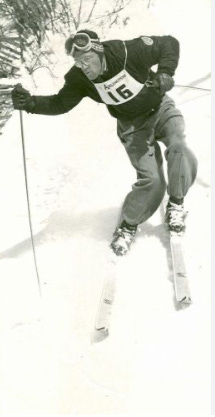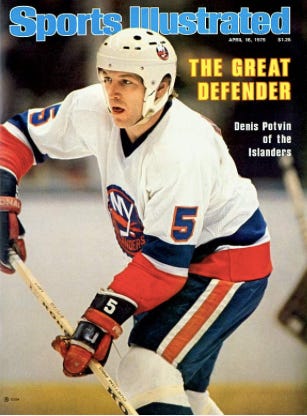No. 242: STEVE YZERMAN / I'd written about the captain a few times during Detroit's glory run, but the tribute for a best-of list had the worst possible outcome, a killer story I couldn't print
I had a novel & generous way to celebrate a mundane assignment, but it was undone by a strain I hadn't foreseen & a confidence I couldn't betray.
Rankings of the greatest in any game are, No. 1, a fool’s errand for the poor chumps whose editors assigned them to the undertaking, and No. 2, click-generating content as addictive as heroin.
Per No. 2, I can’t get enough of them. As for No. 1 of them, yeah, I’ve been drawn/saddled with a greatest-of assignment, but thank God, only one. And as I look back that greatest-of, it demonstrates not just His mercy but also His under-rated sense of humour.
When I was at the Ottawa Citizen back in 1999, the editors there came up with the idea of doing “100 top sports figures of the century.” (The exact terms are important here for reasons that will become clear.)
Yes, reader, as if it wasn’t ridiculous enough to compare the best in the game in the present day to the best of ancient past, the editors, a collective 40-watts in intellectual radiance, wanted us to cross reference the gamut of perspiring pastimes.
The payoff to this was so Ottawa, the perfect distillation of the Citizen. Check out the list:
In a nutshell, lesser cities have had better centuries. Let’s dwell on the top three. Two dead white men and a white septuagenarian you’ve never heard of.
Naismith
Okay, No. 1, James Naismith, you recognize, the Almonte native credited with inventing the game of basketball. Didn’t play it, but did hang the peach baskets and blew the whistle. Made sure the ball was inflated and aligned the laces. He didn’t have the game completely figured out—the way he drew it up required a jump ball after every basket, but he was smart enough to let the other get the kinks out. (In the promo mentions of the series, the No. 1 slot was designated “Ottawa’s top sports hero.”
Gorman
No. 2, T.P. Gorman, well, I don’t have to lay it out for you if you’re a dues-paying member of the Society for International Hockey Research or perhaps a horse-racing historian. He was the last living founder of the NHL, coaching Chicago and the Montreal Maroons to Stanley Cup championships in consecutive season, which is no small trick. He was also general manager of ye olde Senators when they won a Cup in the 20s and GM of the Canadiens in two championships in the 40s. He also owned Phar Lap, a legendary race racehorse whose mysterious death prompted myriad conspiracy theories in times of yore. Gorman was an Olympic gold medalist as well, in lacrosse back in the 1908 London Games, a feat diminished slightly by the fact that there was no bronze medal—the competition featured only a team from the host nation and Canada’s squad.
Clifford
No. 3, ah, but No. 3, there was the genius of the list, John Clifford. Mr Clifford went to the 1948 and 1952 Olympics with the national ski team … but as an alternate. He had a chance to go down the course in practice run and prayed for his teammates to come down with the flu, in vain alas. Mr Clifford wound up developing ski resorts, but his greatest contribution was the development of the technology to produce artificial snow and engineered Canada’s first two-seat chairlift.
(This one was lost on me—I’ve never skied and never wanted to. He might still have had my vote for No. 99 or 100 if he had invented the snow blower.)
Understand, I had no vote in the matter. Pretty sure I’d have worked an athlete into the top three. And a woman. In the Capital, though, where statecraft and management rule over action, where great literature is a Royal Commission’s white paper, Naismith, Gorman and Clifford were perfect fits—that Gorman wound up a sportswriter for the Citizen was surely his lowest point and might have even deprived him of the No. 1 slot.
I wound up writing a profile of Steve Yzerman, No. 6 on the list. Longtime readers of How to Succeed in Sportswriting (without Really Trying) will recall that this wasn’t the only time I wrote a tribute to Stevie Y for an Ottawa newspaper—the other time, though, my prose about Detroit’s beloved captain appeared under someone else’s byline in a newspaper that I was competing with the one that issued me paycheques. Day One subscribers can take a trip down memory lane with the story behind the story, what is still the second-most read entry in the life of this SubStack; late arrivals will get an eyeful—the first 200 essays in the archive are behind a paywall but I’ve taken the paywall down on this one for a few days: No. 26: A REPORTER NAMED "BOB" / Don't turn your back on colleagues in need ... but make sure they get it down right. Satisfaction guaranteed.
I tried to make a case to the editor that Denis Potvin would have been a more appropriate choice than Yzerman, and not simply because the Islanders’ Hall of Famer led his team to four Stanley Cups versus Yzerman’s two at back in 1999.
Potvin
Potvin earned First All-Star Team honors five times and Second Team three times versus Yzerman’s … well, he’d make the First All-Star Team for the first and only time in 2000, to be expected given his career overlapped with Wayne Gretzky and Mario Lemieux. The notion that Potvin is, at worst, a wash with Yzerman for the stuff on the ice seems self-evident even before you factor in the former’s three Norris Trophies as the NHL’s top defenceman—Potvin was the best in the world at what he does for a good long stretch at his peak, whereas you could make the claim that Yzerman near his respective peak wasn’t even the best player at his position on his own team (submitting Sergei Fedorov, who won the Hart and Selke Trophies in ’94).
Yzerman had recency bias in his favour for those who drew up the list, but I figured Potvin’s connection to the capital would cancel that out. Potvin was born in Vanier and lived in Gatineau and played for his hometown 67’s back in their early years. Yzerman’s family moved to Ottawa when he was 12 and he’d play four years of youth hockey in Nepean before landing with Peterborough to play major junior.
Those drawing up the list weren’t convinced. Underlying their resistance was a visceral dislike of Potvin—though he had been great in my dealings with him, many found him arrogant and, fact is, they knew him better and longer than I did. His exclusion from the top ten was payback for at some point stiffing a young reporter working a junior game way back—what goes around comes around at the end of the century, I guess.
Below the paywall though, I’ll dive further into a previously untold story about the Yzerman tribute, what I thought was best left out. Not to oversell it—this wasn’t anything salacious, nothing that had a faintest whiff of scandal. And, yeah, it definitely had a ridiculous scribe-life aspect to it, another of those too frequent instances of your correspondent dialing the wrong number, saying the wrong thing and getting the worst possible outcome. Yeah, for all my lofty yet irreproachable intentions I end up humbled and self-owned.
Let’s begin.
WHEN I was saddled with Stevie Y tribute, I drew up a hit list of those connected to the beloved captain. My own ranking of most desired quotes. Second from the top of the list was Jim Devallano, a reliable raconteur, the Wings’ exec behind the drafting of Young Master Y as a fallback with the fourth overall pick when the Islanders poached Pat LaFontaine, a phenom with a Michigan connection. Teammates from the Wings’ Stanley Cup teams of ‘90s would be good, I reckoned, Brendan Shanahan, Larry Murphy and Igor Larionov, likely to yield the greatest insight. Ken Holland, the GM in Detroit, likewise. No. 19’s agent, Larry Kelly, who balanced his client list with his family’s ownership and operation of a funeral home in Ottawa. All kinds of rich veins to mine, 20 names on the list by the time I set about making calls.
Now, many of you might reasonably ask why I thought I’d need so many secondary sources. Others might jump ahead and presume that I was approaching the assignment this way because Yzerman would be a reluctant witness or maybe even make himself unavailable. This, though, was not the case. In fact, Yzerman had a decent relationship with the press in general and some history with me (a shared connection going back to his youth). At issue was substance. Yzerman was at once co-operative but over-cautious—he would talk to you at length, but when you’d go over your notes after, you’d realize that he said nothing of interest. This is the scribe’s worst nightmare—hostility or even refusal you can work with, but rote banality is death.
At the very top of the list was my No. 1 target, someone who often sat beside me while I worked.
Keep reading with a 7-day free trial
Subscribe to How to Succeed in Sportswriting (without Really Trying) to keep reading this post and get 7 days of free access to the full post archives.









